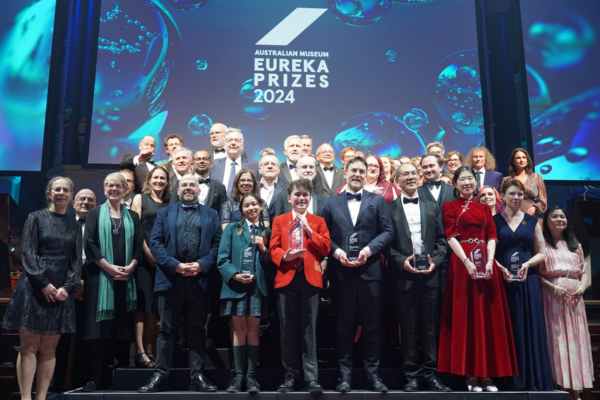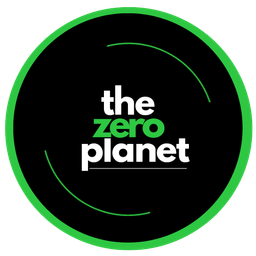Nature wins at Eureka awards
Australian scientists tackle biodiversity loss, climate resilience and energy efficiency.

Researchers targeting some of the planet’s most urgent environmental challenges take top honours at this year's Eureka Prizes.
The awards, now in their 35th year, recognise excellence in science and many of this year's winners' research reflected a focus on sustainability.
Prize winners also reached gender parity for the first time, according to the Australian Museum, while ocean-related research emerged as a strong theme, reflecting the central role of marine ecosystems in climate resilience.
One of the headline winners, the Living Seawalls team, took out the Environmental Research Prize for their nature-based solution to marine habitat degradation.
"These awards remind us not only of the importance of science to Australia’s future, but also of the global impact our researchers, communicators and students make."
By retrofitting concrete seawalls with panels shaped to resemble rocky shorelines, the team from Macquarie University, UNSW and the Sydney Institute of Marine Science, has been transforming urban waterways into thriving ecosystems.
In Sydney Harbour, the structures attracted 115 species – 20 per cent more than plain seawalls, according to data cited by the team, offering a scalable model for biodiversity amid rising sea levels and marine habitat loss.
"These awards remind us not only of the importance of science to Australia’s future, but also of the global impact our researchers, communicators and students make,” Australian Museum director and CEO Kim McKay said.
Solar stepchange
Claiming the Sustainability Research Prize was Professor Anita Ho-Baillie from the University of Sydney for her development of more durable and efficient solar cells. Her research on combining different semiconductor materials is reported to have pushed the energy conversion rate from around 30 to 40 per cent while solving long-standing stability issues associated with perovskite cells.
The winner of the Emerging Science Leadership category was Dr Aaron Eger from UNSW and founder of the Kelp Forest Alliance. The role of the alliance is to champion the vital yet widely overlooked ecosystems of underwater kelp forests.
The alliance unites 340 organisations across 25 countries from science, community and policy and, under Eger's leadership, has established a global ambition to protect and restore four million hectares of kelp forests by 2040.
Sustainable fuel
Taking the prize for Societal Impact in Science was Professor Thomas Maschmeyer from The University of Sydney (NSW) who developed technology to convert biomass and mixed plastics into more sustainable aviation fuels with the goal of reducing emissions, keeping waste out of landfill and helping industry to decarbonise.
Meanwhile, the Octopus and Ice Sheet Team – which comprises researchers from James Cook University, CSIRO and the Antarctic Research Centre – has used genetic analysis of octopuses to trace the collapse of the West Antarctic Ice Sheet back to 120,000 years.
The discovery, which was awarded the Interdisciplinary Scientific Research Prize, is based on biological links between octopus populations that can only be explained if the West Antarctic Ice Sheet had previously collapsed, the team said. Their work places that event during the last period of global warming 120,000 years ago when temperatures were just 0.5–1.5°C above pre-industrial levels.
Bushfire recovery
The Eureka Prize for Innovation in Citizen Science was won by Flinders University's Passport2Recovery program.
Passport2Recovery provides insights into Kangaroo Island’s recovery in the wake of the 2020 bushfires and combines 12 research programs in a single website and app, spanning initiatives on native bees, roadkill and koala movements. More than thousands of tourists from 47 countries engaged with the program, the team says, gleaning scientific literacy for future citizen science projects.
The winner of the Prize for Science Journalism was the ABC (NSW) which in April 2024 – by combining striking visuals, interactive data and personal stories – highlighted the urgent crisis facing reefs following a tip-off about the fourth recorded global coral bleaching event.
The 2025 Australian Museum Eureka Prizes recognised 19 winners for excellence across a wide range of scientific fields, including forensic science, climate research and sustainability. The Museum is considered a leading advocate for biodiversity, climate action, First Nations cultures and advancing scientific understanding, and the Eureka Prizes aim to ignite curiosity, inspire dialogue and drive meaningful change.
Previous winners







